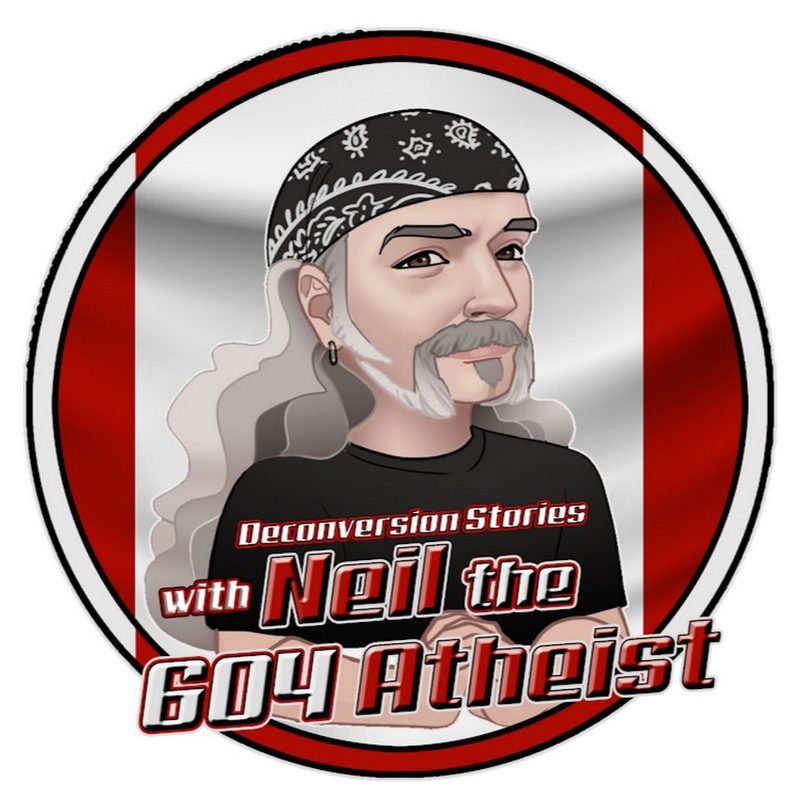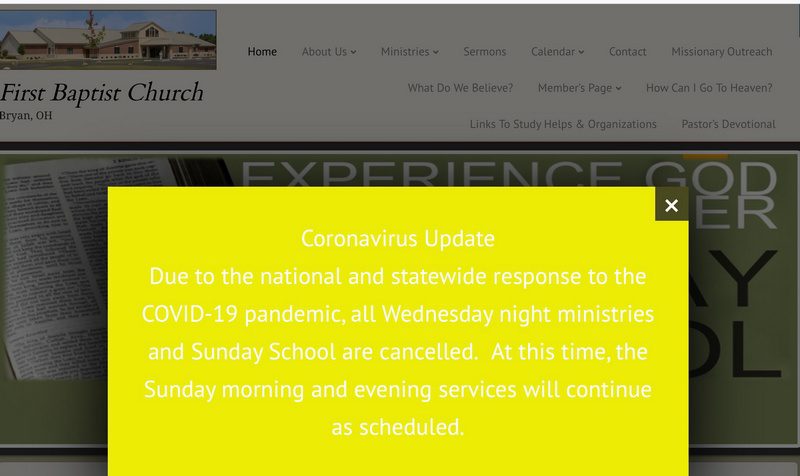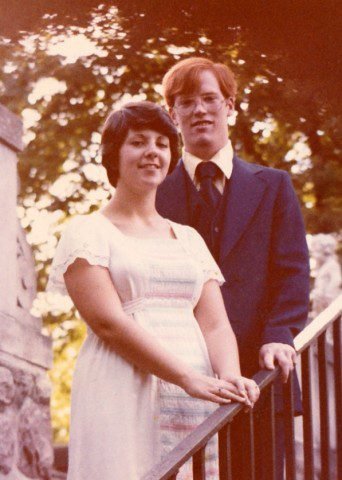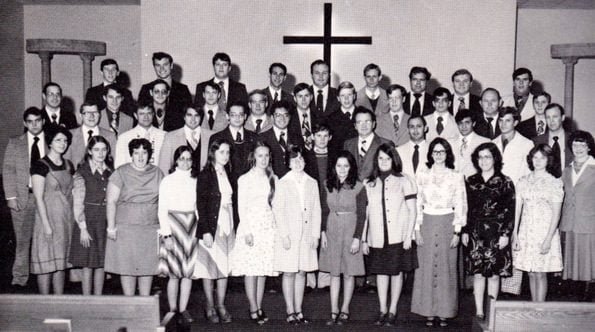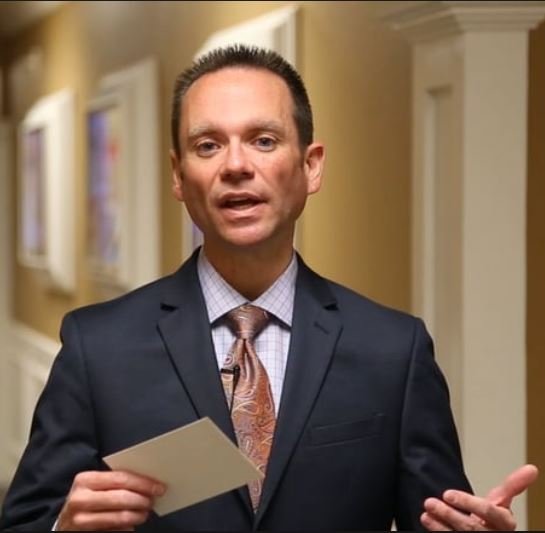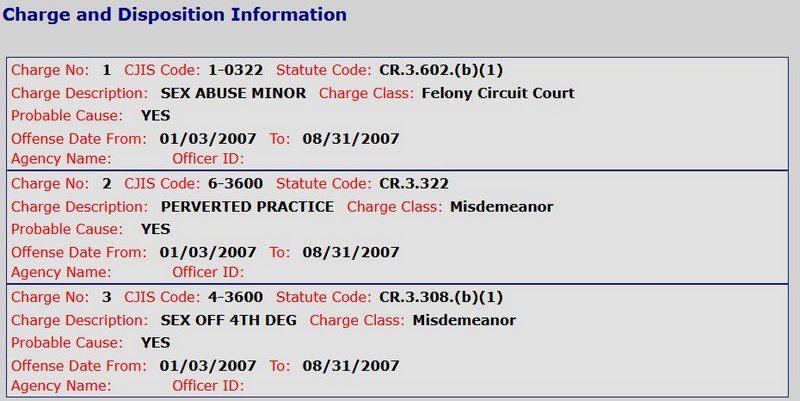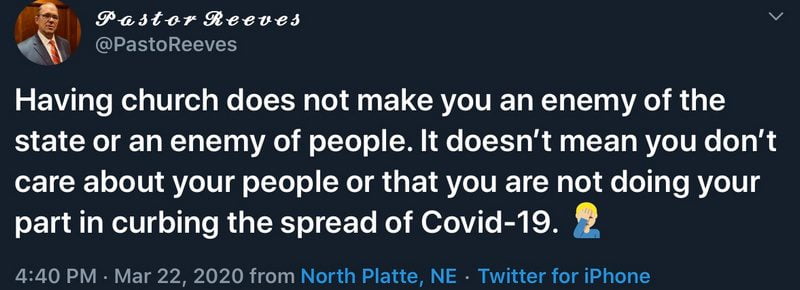
Have you noticed that many of the churches refusing to close during the Coronavirus Pandemic are Independent Fundamentalist Baptist congregations? Over the past week or so I have written about two such churches, First Baptist Church in Bryan, Ohio and the Newark Baptist Temple in Heath, Ohio. (Please see Local Church Continues to Meet on Sundays Despite the Coronavirus Pandemic and IFB Pastor Mark Falls Tries to Use Bible Verses to Guilt People into Attending Church during Coronavirus Pandemic.) Pastor John MacFarlane at First Baptist has since seen the light and all services at the church are now canceled. The Baptist Temple, pastored by Mark Falls, remains open, but some peripheral programs have been canceled and older congregants have been encouraged to stay home. My wife’s parents attend the Baptist Temple, and, fortunately, both of them stayed home on Sunday. Polly’s aunt, the wife of the late James Dennis, who has end-stage bone cancer and is on chemotherapy? She was front and center, praising Jesus.
Why is it that many IFB churches refuse to close their doors? First, IFB churches have a conspiratorial hatred for the government — especially if the government is controlled by Satan’s party, the Democrats. I plan to write more about this hatred later this week. Second, IFB churches tend to have members who are easily led astray by conspiracy theories. This is especially true now that Donald Trump is president. Third, most IFB churches are not flush with cash. If they don’t hold services, their cash flow will be seriously compromised. Fourth, many IFB pastors believe that the government has no right to tell them what to do. Some go so far as to oppose any sort of government regulation, including fire, safety, and building codes. Years ago, an Ohio IFB pastor took it upon himself to build a new building without permits. He believed he should be able to build the building any way he wanted, even if it meant he violated the law. His actions, of course, brought legal action, and his refusal to comply forced the state to raze his building. Fifth, closing church doors would be a repudiation of the belief that God always protects Christians, and no matter the circumstance, the people of God should be present and accounted for on Sundays. Sixth, IFB churches tend to be anti-science. Remember most IFB church members and pastors are Bible literalists, young-earth creationists, and believe the entire earth was covered with a flood a few thousand years ago. Holding such anti-scientific beliefs reflects poor reasoning skills. I am not saying that IFB church members are stupid. I am saying that their theological beliefs cripple their ability to rationally understand the world they live in. Their thinking is crippled by their insistence that the Bible is some sort of divine blueprint for life and it contains everything necessary for life and godliness.
The latest IFB church on my radar is the North Platte Baptist Church in North Platte, Nebraska. Last week, I wrote about the church and its pastor, William Reeves, using the Coronavirus Pandemic as a tool to evangelize people. (Please see North Platte Baptist Church Uses the Coronavirus Pandemic to Evangelize People.) North Platte has continued to run its buses and hold services despite the Coronavirus. Reeves, in classic IFB fashion, has stupidly and stubbornly held his ground. Reeves has received a lot of negative publicity — glad I could help — so much so that he has taken the church’s and his personal Twitter account private. (I was banned long ago from both of these accounts.)
One of Reeves’ last public tweets can be found in the header graphic of this post. Reeves said:
Having church doesn’t make you an enemy of the state or an enemy of people. It doesn’t mean you don’t care about your people or that you are not doing your part in curbing the spread of COVID-19 (with Facepalm emoji, as if what he is saying should be obvious to everyone).
Jesus said in Luke 10:27: Thou shalt love the Lord thy God with all thy heart, and with all thy soul, and with all thy strength, and with all thy mind; and thy neighbour as thyself. The Apostle Paul said in Romans 13:9,10: Thou shalt love thy neighbour as thyself. Love worketh no ill to his neighbour: therefore love is the fulfilling of the law. In Galatians 5:14, Paul said, For all the law is fulfilled in one word, even in this; Thou shalt love thy neighbour as thyself. And finally, James said in James 2:8, If ye fulfil the royal law according to the scripture, Thou shalt love thy neighbour as thyself, ye do well.
Evidently, these verses must not be in Pastor Reeves’ leather-bound King James Bible. Consider what Paul says in Galatians 5:14: all the laws of the Bible can be fulfilled in one word, Thou shalt love thy neighbor as thyself. Holy shit, Batman! Can Pastor Reeves, along with Pastor McFarlane and Pastor Falls and a host of other IFB preachers, honestly say that their actions show that they are loving their neighbors as they would themselves? Of course not. Their actions are driven by one or more of the six things I mentioned above.
To Pastor Reeves I say, if you really loved your neighbors — who include your congregation and the children who ride your buses — would you continue to have mass gatherings? You KNOW that mass gatherings are a prime way to spread the Coronavirus. You KNOW that people NOT showing COVID-19 symptoms can actually be carriers. Everyone could “look” healthy on Sunday, yet some of them could be spreading the virus. IF you really loved your neighbors, you wouldn’t take this risk. You have a social and moral obligation to not only your church but the community at large. By being a weak link in the containment process, you and your church could be making people sick and killing them. What kind of person ignores these things, all for the sake of some sort of theological or political statement? Evidently, you, Pastor Reeves.
I know, I know, the next words out of your mouth are going to be something like this: I DO love my neighbors, so much so that I am going to keep the doors of North Platte Baptist Church open so unsaved people can ride our buses, come to church, hear the gospel, and be saved! That way if COVID-19 chokes the life out of them, leaving their spouses widows and their children orphans, at least they will go to Heaven. Praise the Lord Jesus Christ!
Their salvation can wait a few weeks. All that matters right now is the safety and health of others. I encourage you, Pastor Reeves, to swallow your theology and politics and show love to your community by closing the doors of North Platte Baptist and suspending all group activities until health experts give the all-clear. How you respond will show if you really do take the words of Jesus seriously.
Bruce Gerencser, 68, lives in rural Northwest Ohio with his wife of 47 years. He and his wife have six grown children and sixteen grandchildren. Bruce pastored Evangelical churches for twenty-five years in Ohio, Texas, and Michigan. Bruce left the ministry in 2005, and in 2008 he left Christianity. Bruce is now a humanist and an atheist.
Your comments are welcome and appreciated. All first-time comments are moderated. Please read the commenting rules before commenting.
You can email Bruce via the Contact Form.

